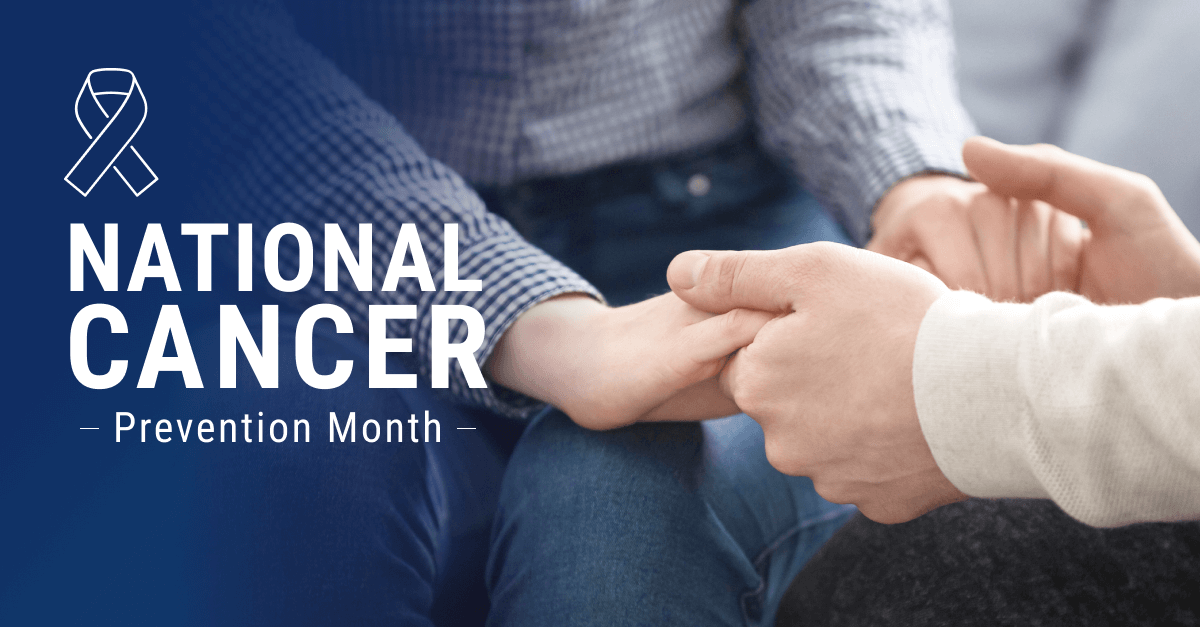Veterans are at a high risk of mesothelioma and other cancers if they were exposed to toxic substances like asbestos while they served. In honor of National Cancer Prevention Month, the Mesothelioma Veterans Center is sharing ways you can raise awareness, help veterans with mesothelioma, and fight to end cancer.
Raising Awareness for National Cancer Prevention Month 2024
National Cancer Prevention Month is a time to help people understand what actions they can take to reduce their cancer risk and share prevention information.
The best way to prevent cancer is to take steps to reduce risks, like smoking and other unhealthy lifestyle choices. Everyone can decrease their risk of developing cancer or detect it early by making healthy choices, scheduling regular doctor visits, and following routine cancer screening guidelines.
It is especially important for veterans to understand ways to prevent cancer since they’re at a higher risk of several cancers, including those stemming from asbestos exposure.
Asbestos-caused cancers include:
- Mesothelioma
- Asbestos lung cancer
- Ovarian cancer
- Rectal cancer
- Stomach cancer
If you or a veteran you love has an asbestos-caused cancer, get our Free Veterans Packet now to learn about treatments and financial aid that can help.
Preventing Asbestos-Caused Cancers in Veterans
There is no way to prevent asbestos-caused cancers like mesothelioma once someone has been exposed to asbestos.
Many veterans may not have known they were being exposed to asbestos while they bravely served their country or that it would put them at an irreversible risk of cancer decades later.
But, veterans can take steps to hopefully catch the cancer before it has spread, which can help them live longer.
How Does Asbestos Exposure Cause Cancer?
Asbestos fibers are microscopic and highly durable. When the fibers are breathed in or swallowed, they can get stuck in the body for decades.
Over time, asbestos fibers irritate healthy tissue and may eventually lead to mutations that cause cancerous tumors to form, usually 10-50 years after exposure.
Those who have been exposed are at risk of developing several different types of cancer. However, not everyone exposed to asbestos will get sick.
Why Are Veterans at Risk of Asbestos-Related Cancers?
Veterans who served between the 1930s and early 1980s are at a greater risk of asbestos-caused cancers. This is because the U.S. military relied heavily on asbestos-based products during this time to build and maintain vehicles, bases, ships, and other assets.
Alarmingly, the cancer risks of asbestos exposure were hidden from the military and general public by manufacturers of asbestos-containing products. These companies put their own profits ahead of human lives.
Any U.S. veteran exposed to asbestos could develop cancer later in life, but veterans at the highest risk worked around asbestos regularly.
Thankfully, veterans with mesothelioma or other asbestos-related cancers can pursue financial and medical benefits from the U.S. Department of Veterans Affairs (VA) as well as legal compensation.
Contact us now to get help accessing financial compensation for asbestos-caused cancer treatment.
Participating in National Cancer Prevention Month
Whether you’re a veteran looking for ways to reduce your cancer risk or a loved one seeking to support a veteran in your life, there are ways you can get involved this National Cancer Prevention Month.
Learn about three ways you can take action below.
1. Stop Smoking
Smoking is the leading cause of lung cancer in the United States. It doesn’t cause mesothelioma, but smoking combined with asbestos exposure puts people at an even higher risk of asbestos lung cancer.
This is because cigarette smoke can worsen the damage caused by asbestos fibers. By quitting smoking, you can help reduce your chances of developing lung cancer and other asbestos cancers later in life.
2. Talk With Doctors
If you were exposed to asbestos, even if it was decades ago, make sure to tell your doctor.
Knowing your exposure history will help your doctors set up routine cancer screenings, even if you aren’t showing symptoms of asbestos-related cancers.
The American Cancer Society (ACS) also recommends preventative screenings for current or former smokers age 50 or over.
Preventive cancer screenings can help you get an early diagnosis of any asbestos-caused cancer and more effective treatment before the cancer spreads.
Don’t delay. Veterans can pursue free or low-cost doctor visits if they have VA health care.
3. Spread the Word
Mesothelioma is a rare cancer, and others who have been exposed to asbestos may not know the risks.
Simply sharing information during National Cancer Prevention Month about asbestos-caused cancers and how to stay safe can go a long way in helping those at risk.
This month, the Asbestos Disease Awareness Organization (ADAO) is partnering with the International Association of Fire Fighters (IAFF) to educate people about the dangers of asbestos that many still face today.
You can help spread awareness by:
- Sharing information about asbestos to social media
- Urging Congress to pass a ban on asbestos to protect future generations from exposure
Since it can take decades for symptoms of an asbestos cancer to develop, it’s easy for people to forget how or when they were exposed. For this reason, it’s important to continue spreading the word and taking small actions to protect others from exposure.
Get Help With Asbestos-Caused Cancers This Month
While it may not be possible to totally prevent asbestos-caused cancers, knowing about the dangers and taking early action can help reduce your risks.
For veterans who have been diagnosed with mesothelioma or other asbestos-related diseases, you don’t have to fight alone. Our team can help you navigate treatment information and access VA benefits, top specialists, and financial aid.
Work with fellow veterans, mesothelioma nurses, and skilled attorneys: call (877) 450-8973 right now.


